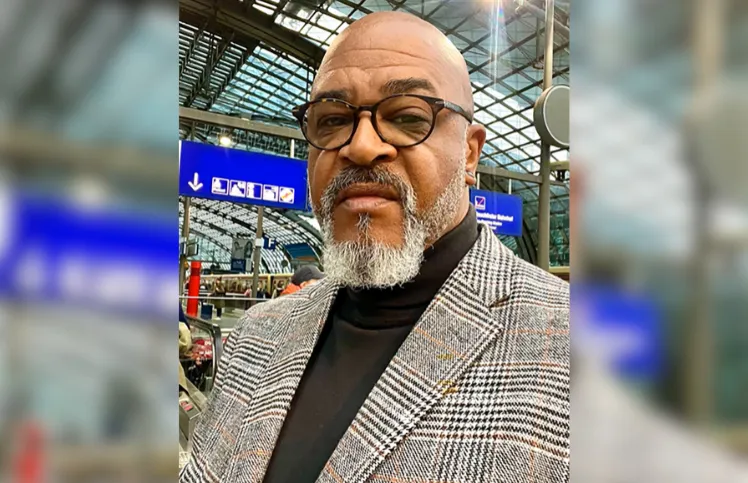
By Aaron Allen, The Seattle Medium
The stigma surrounding mental health care and therapy in the Black community is deeply rooted in historical and cultural contexts. Historically, African Americans have faced systemic oppression, generational trauma, and numerous structural inequities. These experiences have often fostered a survivalist mentality, where seeking mental health support is sometimes seen as a sign of weakness. Additionally, events like the Tuskegee Syphilis Study and unequal access to quality health care have bred a deep-seated mistrust of the healthcare system, reinforcing this reluctance to seek mental health support.
Black therapists play a crucial role in helping to dismantle these stigmas. With cultural competence, Black therapists often bring a deep understanding of the historical context, cultural nuances, and ongoing systemic challenges that Black individuals face. This allows Black clients to explore mental health concerns and navigate the complex intersections of race, culture, and well-being in a way that feels safe and supportive. For many, seeing a Black therapist reduces worries about racial bias, allowing them to speak freely and feel better understood.
“So, the reason why therapy is important is because we live in precarious times,” said Dr. Malik-Hakim Kadir, a clinical psychologist. “And traditionally, most people—not specific to any culture—have grown up with the tradition of not talking about anything that happens in the house outside of the house. So, when you have conflict, we need an unbiased third party to help you gain a different perspective, a clear perspective on what you’re dealing with, to help you identify options for a solution.”
For Dr. Kadir, this “unbiased third party” can be essential to gaining insight into complex personal issues, helping clients see their circumstances from different perspectives, and promoting healthier decision-making. Therapy provides the tools needed to manage stress, address trauma, and develop a strong sense of self, skills that can be particularly empowering in challenging times.
Dr. Lauren Medina, a licensed mental health therapist, highlighted the benefits of therapy as a holistic part of overall well-being.
“I think therapy in general is very important,” said Dr. Medina. “I think maybe some people aren’t completely ready for therapy or there are other resources that could be more helpful for where some people are in life. But at some point in life, I do see therapy being beneficial for most people—just having a safe space, a safe person, too.”
“Whether it’s something specific or just a broad place to kind of dump what’s been going on in the week, there’s a pretty good range of why therapy is really important for mental health. Having that unbiased person in your life who keeps things confidential and is there to just listen,” added Medina.
For some Black clients, this “safe space” becomes an opportunity to express and confront issues related to racial discrimination, internalized biases, or generational trauma that they might not feel comfortable sharing with non-Black therapists. Black therapists help normalize mental health care within the Black community by providing a pathway to overcome the shame and stigma often associated with seeking therapy. Dr. Kadir sees therapy as an essential part of self-care and a necessary means of developing effective coping strategies.
“Self-care is anything that you do to take care of yourself, as long as it doesn’t cause harm to you or someone else,” Kadir explained. “So, for example, exercise, meditation, journaling, socialization with positive, uplifting people, or what you consider your village. Getting enough rest and reducing your overall stress as much as possible. Therapy helps you identify healthy coping strategies to deal with stress.”
While non-Black therapists can also be effective, Dr. Medina stressed the importance of culturally competent therapy and representation in mental health care. The lack of representation among therapists, she noted, can create barriers for Black clients who may fear misunderstandings or bias in their treatment.
“We need more Black therapists, you know, because as a non-Black person, I can do as much education, understanding, dedicate my life to advocacy work, and also providing that safe space,” said Medina. “So, if there are Black Americans—specifically in Washington State, where there is a lower population—to go for that, to go for being a therapist. If that’s what you feel like your calling is, to create those spaces where they do start to feel genuinely safe.”
Statistics show that Black therapists represent only 4% of therapists in the United States, a stark contrast to the demand for culturally sensitive mental health support within the Black community. This lack of representation often leads to misdiagnoses, inadequate treatment, and a reluctance to seek care, further entrenching the mental health disparities that many Black individuals face.
Addressing these issues requires a multifaceted approach, including promoting culturally competent care, increasing awareness of mental health, and dismantling systemic barriers that prevent Black individuals from accessing mental health services. Without adequate representation and understanding in therapy, Black individuals may miss out on the full benefits of mental health care, which can be transformative both individually and collectively.
Dr. Kadir and Dr. Medina agree that therapy can offer unique benefits for the Black community, including:
• Addressing trauma: Therapy provides a means to process and heal from racial and generational trauma.
• Building resilience: Therapy helps clients develop strategies to manage systemic stressors.
• Cultivating self-advocacy: Therapy empowers individuals to advocate for their needs, both in and outside of therapy.
• Building support networks: Therapy can help clients connect with others who share similar experiences, fostering a sense of belonging.
• Challenging internalized biases: Therapy assists clients in recognizing and deconstructing any ingrained biases.
• Breaking generational cycles: Therapy can help break the stigma of mental health that has been passed down through generations.
• Fostering trust and safety: Working with a Black therapist can provide a more comfortable, trusting environment.
• Group therapy: For many African Americans, group therapy resonates with communal cultural values.
• Family therapy: Therapy sessions involving families can improve relationships between couples, parents, and children.
• Mindfulness-based interventions: Therapists can introduce mindfulness techniques to help clients manage stress and anxiety.
• NTU psychotherapy: A spiritually based, Afrocentric approach to therapy that aligns with cultural values and spiritual beliefs.
As demand for culturally competent mental health care grows, the importance of Black therapists becomes more pronounced. The therapist-client relationship, particularly for Black clients, relies heavily on shared understanding, trust, and cultural relatability. For many, having a therapist who understands their background and lived experiences is essential to developing a strong therapeutic bond, which can be vital in the journey toward healing and mental wellness.


